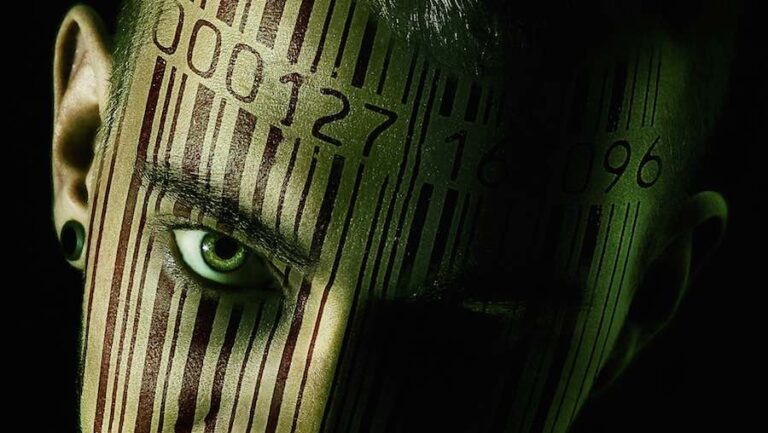This is the third in a series of articles exploring the Global Citizen Movement. How is the system built?
Part I of this series can be found here and Part II here.
In finance, an entry point is the price at which an investor purchases an investment.
In computer programming, an entry point is the point where control is transferred from the operating system to a computer program; it is where the processor enters a program or code fragment and begins execution.
How Global Citizens Receive Their Numbers
In a previous post, we discussed the Global Citizen movement, which tricks millennials into spearheading projects that supposedly improve the lives of the poor and oppressed. In reality, deceiving Global Citizens is a way for corporations to gain access to hard-to-reach parts of the world. These corporations have their own profit motives, but they are themselves being used by other forces who want to control all Global Citizens.
The key to this control is number: A unique identification number that is inseparable from the body. This number gives an individual access to food, water, shelter, healthcare, safety, travel, and all other things that can be bought and sold. This identity will give its bearer permission to live. This unique number is known as a digital financial ID. Banks call this “financial inclusion.” The UN talks about “social and economic inclusion.” It's all the same concept.
Three Entities
Three power groups are working towards a digital financial identity for every human on Earth: banks, governments, and corporations, a triumvirate united under the strict oversight of Pope Francis. Each group has published key documents outlining the practical problems within their respective jurisdictions that need to be solved to achieve this goal.
Companies: Working Group Solutions
Government (United Nations): ID2020 — Public-Private Partnership Concept
bank: UFA2020 Universal Financial Access 2020, WEF Financial Identity Blueprint
Now let's put ourselves in their shoes for a second. Suppose we wanted to give every man, woman and child on Earth a unique number and incorporate them into a world governance system. How would we do that? We would need to address the following criteria:
- What does it mean for every human body in the world to be physically assigned a number?
- Does the number need to be administered by a trained person, and if so, are there local professionals who already have the necessary training and qualifications?
- How do you get everyone to agree to receive the number, or is that even possible without individual permission?
- How can we make numbers inseparable from people?
- Which databases would be internationally acceptable? Can we leverage existing databases?
- How much will it cost? How will it be funded and by who?
- Can we run a pilot scheme first?
What rights do I have in this system?
The most important question is how and where can you start a project? The answer to this important question is given by the United Nations. ID2020 Executive SummaryBut first, some quotes from this must-read document:
A digital identity is a set of attributes and credentials captured and stored electronically that can uniquely identify an individual.
Proof of identity is a prerequisite for social and economic inclusion in modern societies.
The United Nations recognizes identity as a necessary and fundamental human right. Verifiable identity not only answers the question, “Who are you?”, but also “What rights do you have?”
Individuals without recognized identification are denied access to basic services
(Note: Bill Gates lists “basic services” For example, the food we eat, the clothes we wear, the television we use, the heat we give us — he calls these “very good things.” Bill Gates is a big supporter of Global Citizenship.
A universally recognized identity requires a common or centralized registry, and although the UN knows that centralized registration has been abused many times in the past, it still wants to go ahead with the plan.
Between 2017 and 2020, ID2020 efforts will focus on two areas: developing and testing the best technological solutions for digital identity, and working with governments and existing institutions to implement these solutions.
Before developing the right technologies or deciding which technologies to deploy, governments around the world must decide on a focus, starting point, starting point, or, in their words, Entry pointThe UN presents many examples in its documents, but one country's example stands out in particular.
Malawi
As a failed state, Malawi lacks the bureaucratic infrastructure to issue official identification to its residents; the country's government no longer functions. Identification is difficult to obtain. But the UN notes that vaccination is highly effective and comprehensive; 97% of Malawian infants receive their first tetanus shot by the age of six weeks.
This target population is well suited to test the technological options proposed for a global digital financial identity program: these children could one day become the first official global citizens with a number that will give them access to “basic services” such as food, water, and shelter.
It checks many boxes: trained staff are already carrying out the procedures, women have already consented to vaccinating their babies, the registration system is up and running and the costs are known. But how will these babies be given their new global citizen numbers? The UN answers in its own words:
In many developing countries, vaccination rates far exceed birth registration rates, Identity Entry Points.


